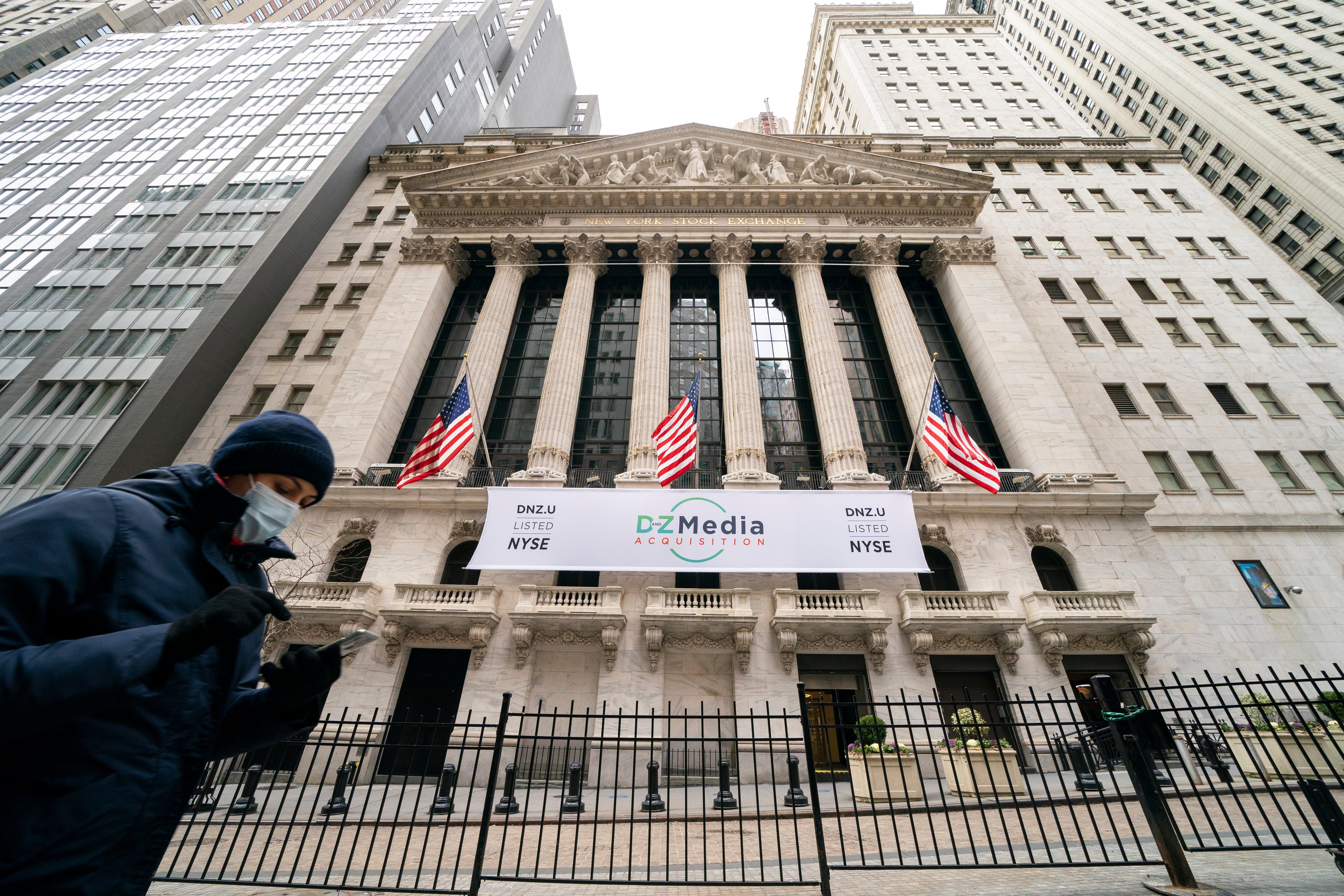Asian shares mixed as investors await progress on stimulus
Asian shares are mixed as hopes for a recovery from the coronavirus pandemic with the global rollout of vaccines are countered by worries about inflation and continuing economic damage

Your support helps us to tell the story
From reproductive rights to climate change to Big Tech, The Independent is on the ground when the story is developing. Whether it's investigating the financials of Elon Musk's pro-Trump PAC or producing our latest documentary, 'The A Word', which shines a light on the American women fighting for reproductive rights, we know how important it is to parse out the facts from the messaging.
At such a critical moment in US history, we need reporters on the ground. Your donation allows us to keep sending journalists to speak to both sides of the story.
The Independent is trusted by Americans across the entire political spectrum. And unlike many other quality news outlets, we choose not to lock Americans out of our reporting and analysis with paywalls. We believe quality journalism should be available to everyone, paid for by those who can afford it.
Your support makes all the difference.Asian shares were mixed on Monday as hopes for a recovery from the coronavirus pandemic with the global rollout of vaccines were countered by worries about inflation and continuing economic damage.
Benchmarks rose in Hong Kong and Japan but fell in South Korea and Australia. Investors remain focused on the future of global economies badly hit by COVID-19 and when and whether there will be enough stimulus to fix it.
But the U.S. $1.9 trillion economic package proposed by President Joe Biden also heralds hope for export-reliant regional economies.
Japan's benchmark Nikkei 225 gained 0.8% in morning trading to 30,250.83. South Korea's Kospi dipped 0.3% to 3,097.27. Australia's S&P/ASX 200 was little changed, inching down less than 0.1% to 6,789.80. Hong Kong's Hang Seng added nearly 0.4% to 30,750.83, while the Shanghai Composite fell less than 0.1% to 3,694.81.
Japan began administering vaccines for COVID-19 last week. It was the last of the Group of Seven industrial nations to get started, beginning with health workers. Prospects for further shipments of vaccine remain uncertain, according to Taro Kono, the Japanese minister tasked with overseeing the effort.
Vaccination drives are set to start soon in other Asian nations, such as Malaysia, Vietnam and the Philippines.
Investors remain focused on the future of global economies badly hit by COVID-19 and the potential for more stimulus to fix it.
The U.S. House of Representatives is likely to vote on Biden's proposed package by the end of the week. It would include $1,400 checks to most Americans, additional payments for children, and billions of dollars in aid to state and local governments as well as additional aid to businesses impacted by the pandemic.
“But timing is everything," Stephen Innes of Axi said in a commentary. He noted that inflation concerns are overhanging the market, as the economy heals from the pandemic downturn while the Biden administration strives to recover the millions of jobs lost.
“The next leg of the reflation will have to be carried more and more by a continued recovery in economic growth, as fiscal and monetary stimulus gets increasingly packed into the price," he said.
One challenge is to keep inflation in check and minimize trauma to the markets from adjustments in the Federal Reserve's ultra-supportive monetary policy.
Last week, the S&P 500 extended its losing streak to close 0.2% on Friday at 3,906.71. The Dow Jones Industrial Average and Nasdaq composite closed essentially flat, while another strong showing by smaller companies pushed the Russell 200 index to a 2.2% gain.
In energy trading, U.S. benchmark crude added 50 cents to $59.74 a barrel in electronic trading on the New York Mercantile Exchange. It lost $1.27 to $59.26 per barrel on Friday. Brent crude, the international standard, rose 62 cents to $63.53 a barrel.
In currency trading, the U.S. dollar inched up to 105.61 Japanese yen from 105.47 yen late Friday. The euro cost $1.2116, down from $1.2125.
___
Yuri Kageyama is on Twitter https://twitter.com/yurikageyama